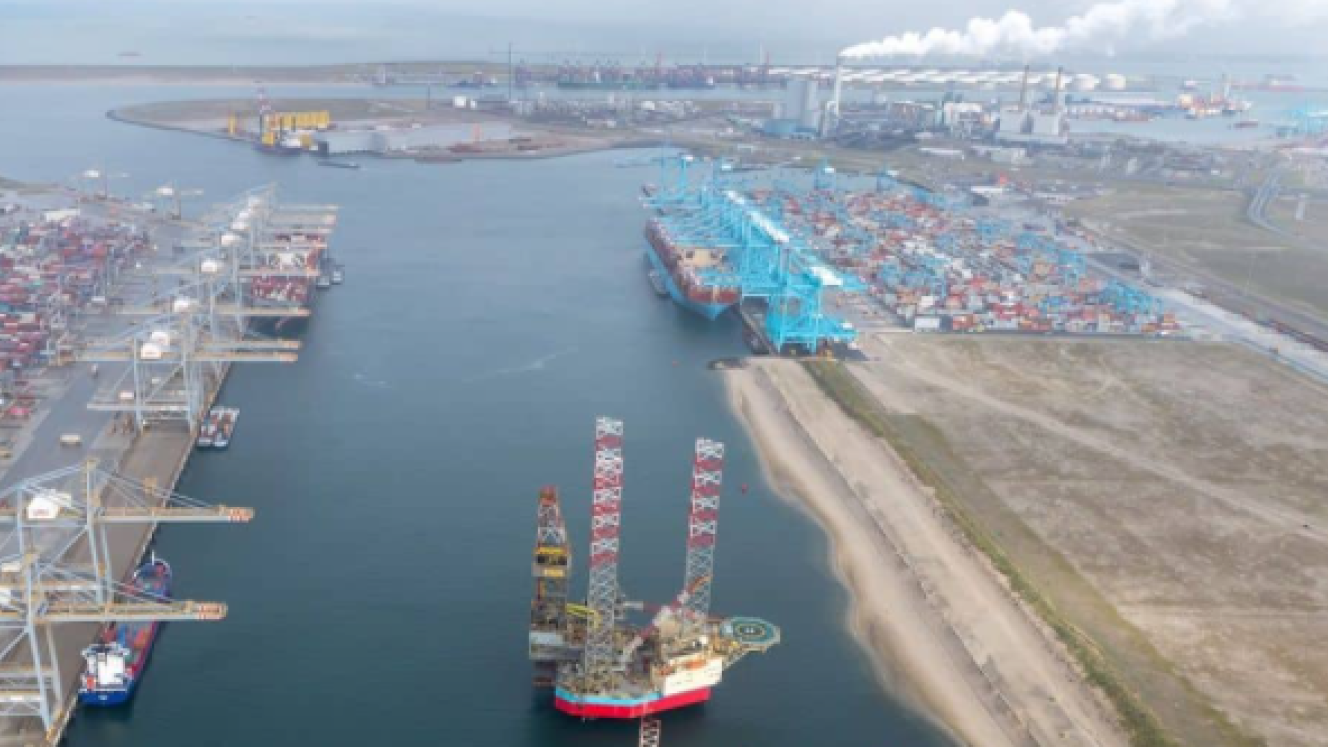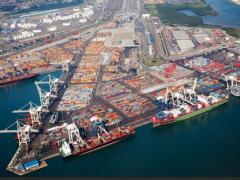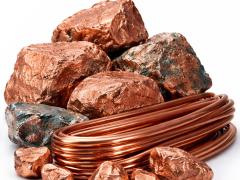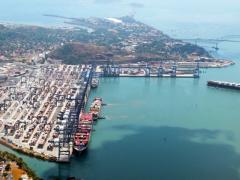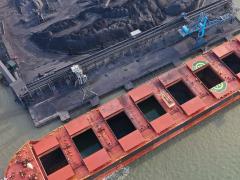The Port of Rotterdam has been named the top most polluting port in Europe, accounting for almost 14 million tonnes of CO2 each year, according to a study by NGO Transport & Environment (T&E).
This puts it on a par with Europe’s fifth-biggest industrial polluter – the Weisweiler coal power plant in Germany – a new study ranking ports’ carbon emissions shows.
According to the NGO, which is at the forefront of campaigning for cleaner transport in Europe, Antwerp and Hamburg come in second and third, while three of the top 10 polluting ports are in Spain. In a year of bumper profits for the industry, T&E has called on ports to get behind EU-wide efforts to reduce shipping’s climate impact.
The study, carried out by T&E, assesses carbon emissions from ships departing and entering ports from across the supply chain, as well emissions from activities at port like loading, unloading and refuelling. The shipping industry is a fast-growing emitter and Europe’s ports have been reluctant to back mandates for clean fuels.
“The post-Covid rebound in trade has seen container shipping prices soar, but even before the pandemic, where data is available, ports were handling more and more goods.
Between 2012 and 2019, cargo volumes at Rotterdam, for example, rose 13%. With container profits at an all-time high last year, and shipping companies with profits rivalling even those of Apple and Facebook, ports are expected to have had a lucrative year in 2021 too,” says Jacob Armstrong, sustainable shipping officer at T&E.
“The shipping industry is making a killing right now. Ports are at the heart of this and their climate impact is enormous.
Yet, instead of getting behind proposals to clean up shipping, like comprehensive port electrification and mandates for green fuels, ports simply aren’t doing enough to clean up the sector.”
Data from ship emissions at ports is also damning.
Rotterdam once again scores worst, with important port metropoles such as Antwerp, Piraeus (Athens), Barcelona and Hamburg also scoring badly on emissions from port activities like loading, unloading and refuelling.
Despite this, port lobbyists have argued against stricter targets for shore-side electrification, which would eliminate pollution in ports, and have lobbied against such targets for shipping segments like oil tankers and bulk carriers. This point is particularly bitter for the port communities of Amsterdam and Rotterdam, points out T&E, where oil tankers account for the largest proportion of emissions at port.
Alongside CO2, traditional ships pump significant amounts of harmful gases like nitrogen oxide (NOx) and sulphur dioxide (SOx).
